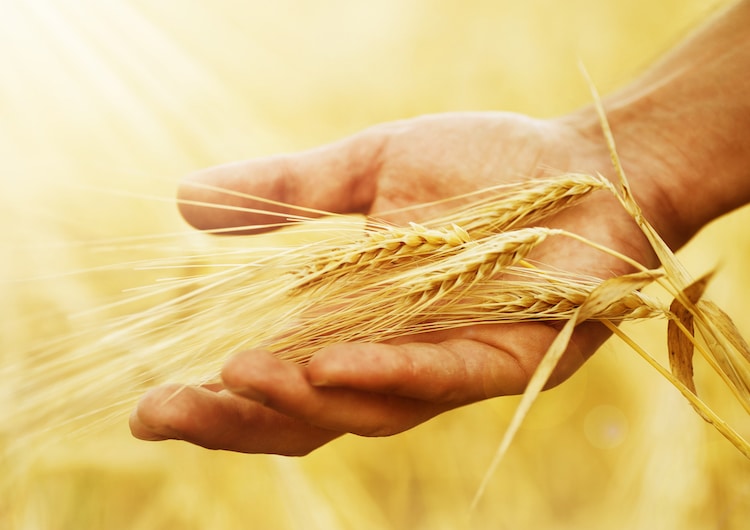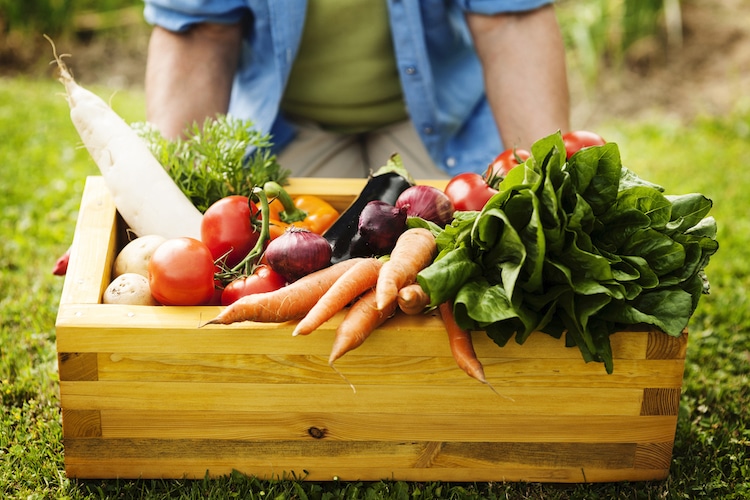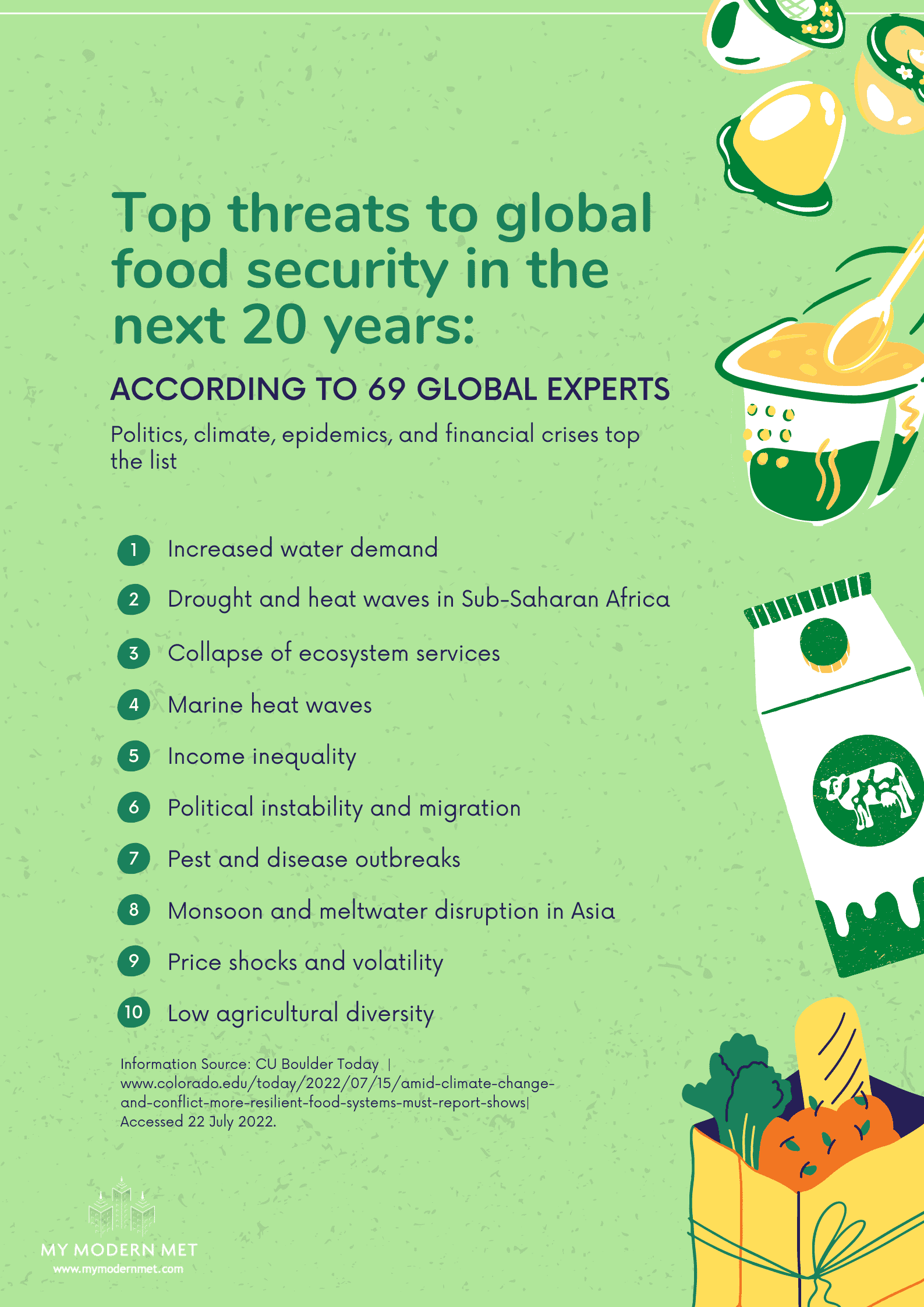
Photo: Subbotina/Depositphotos
We all know that the world is facing a climate crisis. And if you were a non-believer, the heat waves hitting the U.S. and Europe this summer might be enough to convince you. Unfortunately, these heat waves are becoming all too common, leading to fire, drought, and dangerous health issues. Soon, humans will need to start adapting infrastructure to this new climate or we could be in real trouble. This includes our food systems, as increased demand for water over the next 20 years will be our biggest threat.
In a study, which was published in One Earth, a team led by the University of Colorado Boulder surveyed 69 food security experts around the globe. Everyone was asked to rank their top food security threats over the next two decades and the results are interesting. While climate change and the environmental challenges that it brings top the list, the study also cites political conflicts, income inequality, and migration as other threats to be aware of.
It's no coincidence that more than half of the world's population living with food insecurity is based in areas of high political conflict. Displacement caused by these conflicts, such as what we're seeing right now in Ukraine, will be one of the top five threats to food stability over the next 20 years.
“Food security is not a problem of production, it’s a problem of distribution, access, and poverty, and that is exacerbated by conflict,” says Zia Mehrabi, lead author of the study and assistant professor of environmental studies and in the Mortenson Center in Global Engineering. “Conflict not only makes people more vulnerable but also limits their ability to adapt.”

Photo: gpointstudio/Depositphotos
The goal of the study is for researchers and policymakers from different fields to work together toward concrete solutions rather than staying focused in their own niches. “We provide strong support for the idea of building more resilient food systems in general, rather than trying to deal with individual problems here and there,” said Mehrabi. “It doesn't matter whether it’s a climate, environmental or political shock to the system—if you have resilient systems in place, they'll be able to deal with all the different kinds of shocks.”
Right now, as the world battles severe droughts, high heat, the economic effects of COVID-19, supply chain issues, and the war in Ukraine, global food security is in serious trouble. As food prices increase, work to end hunger, food insecurity, and malnutrition is more important than ever.
By asking the experts what areas they feel need more focus in order to enact change, the study also actively looks for solutions to the issue. Many experts cited food diversification as a top priority. For instance, if the world's wheat supply weren't so dependent on Ukraine, problems would have been mitigated during the current conflict. To that end, the study asks policymakers and researchers to consider how countries might diversify their food production.
The study also calls for updated maps and data to better predict the type of issues that the world is currently facing, as what is now available is not actually validated with real-life data.
“We can see it happening in our world right now, conflict and climate getting worse. The trends show, and experts agree, on this getting worse in the future,” said Mehrabi. “How are we going to build and govern food systems that are resilient to all different kinds of shocks and extreme events? We need to start thinking about how we can build systems that can adapt and cope with all of them.”
According to experts, these are the top 10 threats to global food security.

h/t: [CU Boulder Today]
Related Articles:
New California Law Requires Grocery Stores to Donate All Edible Food Waste
Denmark Opens World’s First Supermarket Selling Expired Food to Combat Food Wastage
Eye-Opening Photos Contrast the Meals of the Powerful and the Hungry Throughout History
Illuminated Mountain Vault in Norway Stores Copies of 850,00 Seeds in Case of Global Catastrophe






















































































